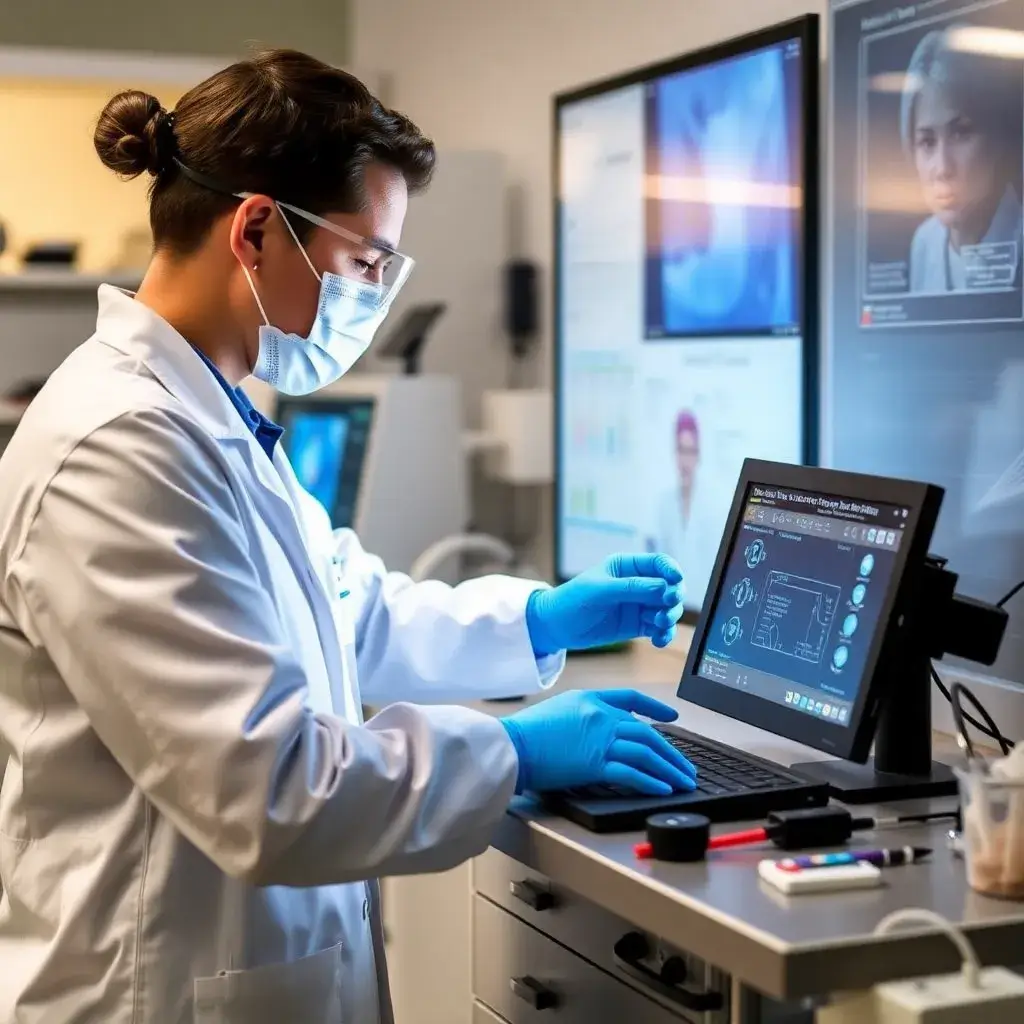
Clinical and Forensics Testing
As a partner in clinical testing, we recognize the critical role accuracy and speed play in healthcare, research, and scientific decisions. Our comprehensive portfolio of analytical solutions offers guaranteed quality and reliable delivery, supporting every stage of your workflow. With application-optimized reagents, reference materials, and tools, we empower you to enhance precision in LC-MS, PCR, and ELISA testing methods. Our expert technical assistance also aids in the design and execution of lab-developed tests (LDTs) for clinical diagnostics, ensuring healthcare professionals can trust their decisions
Overview
Tray of Samples for LCMS Analysis
LC-MS is a powerful analytical technique used more and more in clinical laboratories to analyze complex mixtures and identify and quantify various substances, such as drugs, metabolites, and biomarkers, in patient samples. It offers, often in combination with distinct and robust sample preparation techniques - depending on sample and analyte type - high sensitivity and selectivity, allowing for accurate and fast results for targeted determinations and screenings. LC-MS is particularly valuable in detecting low concentrations of analytes and in identifying unknown compounds, making it an essential tool for enhancing patient care and improving treatment outcomes in today's clinical labs in hospitals. Fundamental for reliable results are suitable standards such as certified reference materials to ensure accurate identifications and quantifications.
Applications of LC-MS
Therapeutic drug monitoring, Hormone screening, Vitamin testing, Drugs of abuse testing, Metabolic analysis, Newborn screening
LC-MS Workflow
The LC-MS workflow starts with sample collection and preparation. Sample integrity and appropriate processing are essential for the subsequent analysis. Common sample preparation tools include filtration devices, syringe filters, multi-well plates, centrifuge filters, and Amicon® Ultra centrifugal filters for urine concentration.
Chromatographic Separation and Analysis
Chromatographic separation is a key step in LC-MS, ensuring the separation of compounds before they are analyzed by mass spectrometry. The choice of chromatographic conditions and equipment plays a crucial role in the resolution and sensitivity of the analysis.
Clinical Applications of PCR
Clinical PCR testing is widely used to detect and analyze DNA or RNA from biological samples for diagnostic purposes. Its applications include identifying pathogens, genetic mutations, and molecular markers, playing a crucial role in treatment monitoring, personalized medicine, cancer care, and other healthcare areas.
PCR Applications
Infectious disease screening and identification, Clinical genomics, Genetic screening, Oncology, Prenatal testing
PCR Workflow and Products
The PCR workflow involves sample preparation, nucleic acid purification, amplification, and analysis. Key products used in the process include nucleic acid purification kits and reagents, amplification kits, and real-time qPCR systems for quantification.
ELISA-Based Clinical Testing
Enzyme-linked immunosorbent assay (ELISA) is widely used for high-throughput screening and quantification of antibodies, proteins, peptides, and small molecules. ELISA plates can be supplied ready-to-use for in vitro diagnostics or prepared in-house for lab-developed tests.
ELISA Applications
Oncology, Infectious diseases, Drugs of abuse screening, Hormone measurement, Immune function/immunology
ELISA Workflow and Products
The ELISA workflow involves plate preparation, coating reagents, washing, sample binding, and detection. Common products include ELISA plates, capture antibodies, buffers, and reagents for detection.